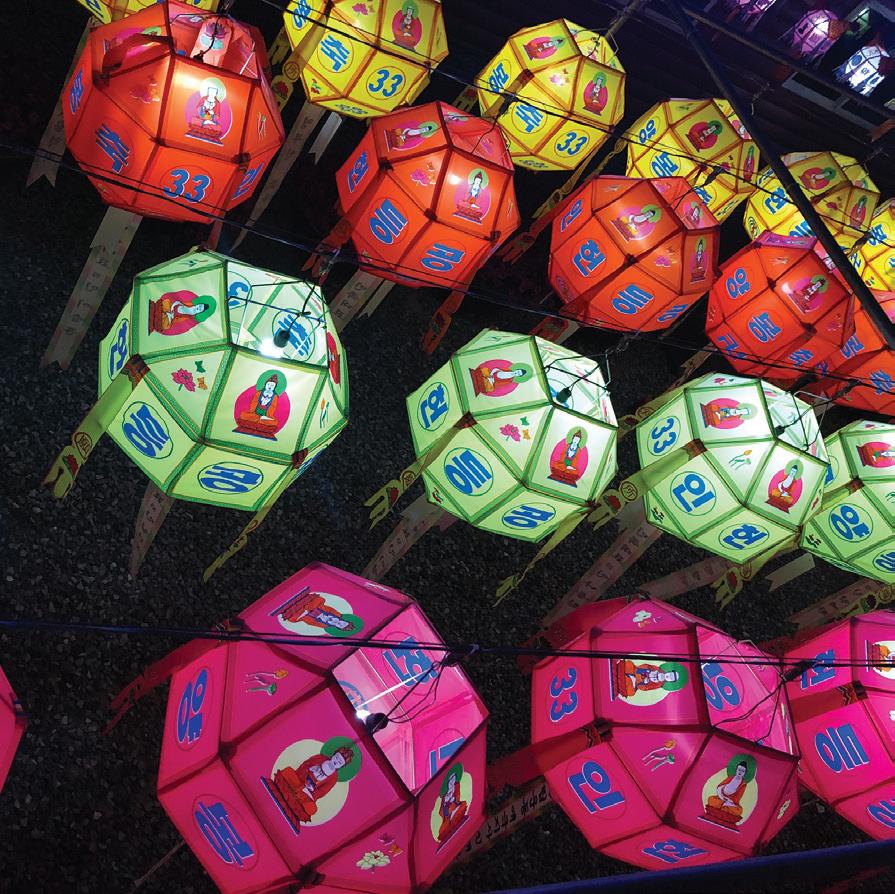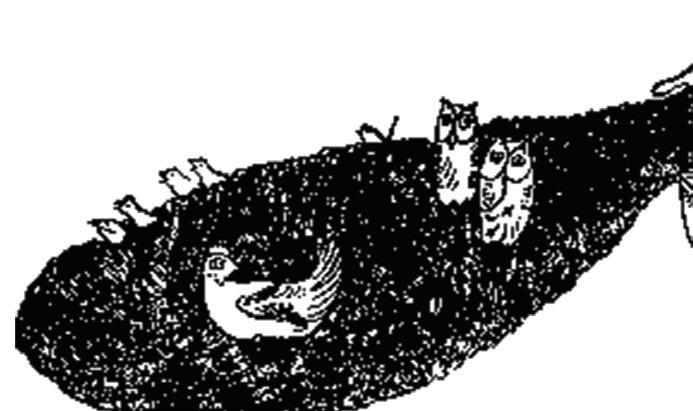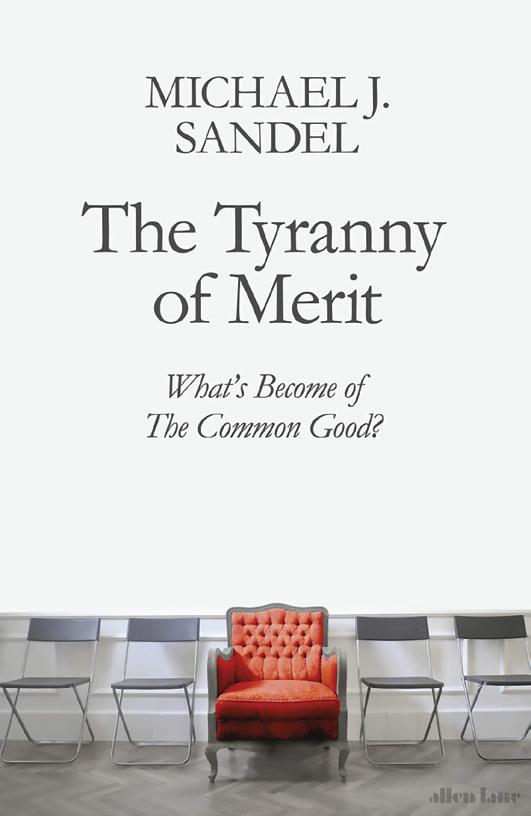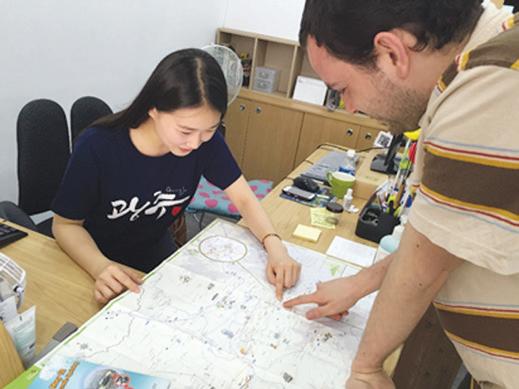
23 minute read
Expat Living: Th e New Vibe of Studying Online
The New Vibe of Studying Online
By Nargiz Iskandarova
Advertisement
While many countries are at various stages in their COVID-19 infection rates, worldwide there have recently been more than 1.2 billion children and 186 countries affected by school closures due to the pandemic. The COVID-19 pandemic has triggered new ways of learning. All around the world, educational institutions are looking toward online learning platforms to continue with the process of educating students. The new normal is a transformed concept of education with online learning at its core. Today, digital learning has emerged as a necessary resource for students and schools all over the world. Many education systems, which have never witnessed a pandemic of this scale, have had to set up new online classes for students.
It is interesting to highlight that South Korea shifted from offline classes to online ones in a short period of time. It is no secret that Chonnam National University and Kwangwoon University adopted new styles of teaching that have advantages as well as disadvantages. One effect of the pandemic is that students as well as teachers have had to surmount a number of difficulties that have caused a great amount of stress. Another was that Chonnam National University and Kwangwoon University campuses have became emptier than ever before. So students, especially international ones, went into a panic that triggered them to abandon school by taking leaves of absence. However, thanks to the Korean education system’s professional workers who bore the burdens of change and uncertainty upon their shoulders, many new educational avenues have opened up. Nevertheless, the disadvantages of online learning have outweighed the advantages.
Advantages include the following. Efficiency – Online learning has offered professors an efficient way to deliver lessons to students. Such learning comes with a number of tools such as videos, PDFs, and podcasts, and teachers can use all these tools as part of their lesson plans. By extending the lesson plan beyond traditional textbooks to include online resources, teachers have been able to become more efficient educators.
Accessibility of Time and Place – Another advantage of online education has been that it allows students to attend classes from any location of their choice. It also allows schools to reach out to a more extensive network of students, instead of being restricted by geographical boundaries, especially for students who took leaves of absence. Additionally, online lectures can be recorded, archived, and shared for future reference. This allows students to access the learning material at a time of their choosing.
However, the disadvantages of online leaning outweigh the advantages due to a number of factors, including these. Difficulty Focusing on Screens – For many students, one of the biggest challenges of online learning has been the struggle with focusing on the screen for long periods of time. With online learning, there is also a greater chance for students to be easily distracted by social media such as Instagram and Facebook. Therefore, it is imperative for teachers to keep their online classes crisp, engaging, and interactive to help students stay focused on the lesson. But it is often almost impossible to keep them on track.
Technology Issues – Another key challenge of online classes has been internet connectivity. Sometimes the internet connection does not work properly, and students are either absent as a result or just give up on the class. While internet penetration has grown by leaps and bounds over the past few years, in smaller cities and towns, a consistent connection with decent speed has been a problem, especially for students who were in Uzbekistan or other countries facing huge problems such as the fact that the internet is not always free and can be quite slow compared to South Korea. So, students have had to wait, and time management has been difficult. Without a consistent internet connection for students or teachers, there can be a
lack of continuity in learning for the students. Ultimately, this is detrimental to the education process.
Sense of Isolation – Students can learn a lot more while in the company of their peers and by hanging out with them outside of class. However, in online classes, there are comparatively little interaction between students and teachers. Th is oft en results in a sense of isolation for the students, like having to stay home 24/7 all alone. In this situation, it has been imperative that schools allow for other forms of communication between students, peers, and teachers. It has been very hard for students to give up on friends with whom they used to easily share their feelings and exchange knowledge with.
In this regard, one student studying at Kwangwoon University whom I interviewed, Jakhongir Sultonov, told me that online classes were tedious and diffi cult to understand. He had a very diffi cult time due to online classes. He said that some of the classes need to be taught as offl ine classes to be eff ective. He highlighted that it is more fun to study when interacting with peers.
The Author
Nargiz Iskandarova is currently a student at Chonnam National University, majoring in English language and literature. She has recently completed a TESOL class at Chosun University and is considered one of the youngest authors in Chonnam National University. Nargiz is a future professor who is eager to improve education around the world. She thinks that everyone must be educated regardless of gender and religion. @nargiz_iskandarova
May 8 (Sat.) 13:00–17:00 Online & Offl ine

Registration Period: April 13 (Tue.) – April 27 (Tue) Target Group: International residents in Gwangju Venue: Online via Zoom, Offl ine at Gwangju International Center Languages: Korean, English, Chinese, Vietnamese Application: Visit http://eng.gic.or.kr/ → Submit online application Participation Fee: Free Available Categories: Foreigner's Life, General Law, Health Care, KIIP, and Dental Check-up

Ocean of Light: Dongdae Temple
By Aline Verduyn
When my mum visited me in May of 2019, I was wondering what beauty I could show her. The cherry blossoms had already passed. Buddha’s Birthday was the only event coming up, though I knew little about it. After asking around, my dongsaeng (동생, lit. “younger brother”) gave me the best recommendation. “Go to Dongdae-sa [ 동대사],” he said, “it is a big temple, and they always hang many lanterns for this holiday.” Intrigued by the beautiful temples in Korea, off we went on a Thursday evening to Dongdae Temple.
It was a part of Daegu I had not been to before. Following the map, we turned right off the main road and started noticing a string of colored paper lanterns leading us up a road marked by the setting sun. We knew we were heading in the right direction. It was a quiet neighborhood, with just the string of lanterns to guide us. This path was the perfect onset to what our eyes were going to feast on. A little downhill and uphill, we found ourselves at the entrance of the temple, and our jaws dropped at the twinkling wonderland. From



left to right, as far as we could see, were lanterns of all sizes, shapes, and colors, all brightly lit. Th ere were rows and rows of them, up on the hill behind the temple, over our heads, and in arches through the large courtyard. “We’ve arrived at the Buddhist version of heaven,” we thought.
Our cameras were busily snapping all angles. Th e giant paper-made animals, lanterns fl oating on the pond, and others dangling from the temple’s rooft ops, together with a light breeze and nothing but the sound of the wind chimes, only contributed to the serene atmosphere one can only fi nd at temples here. We were the only ones there, and for us, it was food for the soul. It was my mum’s best memory of Daegu. I guess May wasn’t a bad time of year to visit aft er all.
The Author
Aline has lived in Korea for fi ve years across diff erent cities and is now happily settled in Gwangju, where she is co-hosting “Way Back with U” on GFN Radio and working on her master’s thesis. @gwangjumiin
Rhythmic Play for Limerick Day



By Muthukumar Elangovan

▲ “Th ere was an Old Man with a Beard,” a famous limerick.
Alimerick is short, funny, and oft en rude poetry that usually consists of fi ve lines with a strict rhyme scheme of AABBA. Th e fi rst, second, and fi ft h lines must rhyme with each other, while the third and fourth are oft en shorter and share their own separate rhyme. Th e etymology of limerick poetry is not known, but it is generally attributed to the city of Limerick in Ireland. Edward Lear popularized limericks aft er the publication of the Book of Nonsense in 1846. Th e following is a limerick from said book:
Th ere was an old Man with a beard, Who said, “It is just as I feared! Two owls and a Hen, Four Larks and a Wren, Have all built their nests in my beard!”
Th e very last line of the limerick is the most important and should pack a punch. Writing those last lines with punches is tough. Here is an example from an unknown author who wrote a limerick about the diffi culty of fi nishing limericks: No fairness! Even in birth! Death is the fairest on Earth. Good, bad, and sinner, One and all a winner, As our ashes are equal in worth.
Here is another one that unpacks the “origin of everything.” Science students and afi cionados might appreciate this and might have improvements of their own:
It all started with a Big Bang, Out of which life also sprang. On Earth, we lay In the Milky Way, But round the Sun we swang!
My aim in sharing these examples is that limericks can be funny and usually are, but they can also be about science and even philosophy. In today’s modern world where news, gossip, and boasting come in short verses typically in 140 characters or less, why not consider the relevance of limerick poetry?
As Khalil Gibran remarked, “Poetry is a deal of joy and pain and wonder, with a dash of the dictionary.” Th e appreciation of poetry can begin with limericks. Th ough other forms of poetry are oft en tedious for beginners to understand, this does not mean that they should be ignored. In fact, any form of writing with good prose must be appreciated. Such is the distinct quality humans possess to appreciate language as an art form that stirs the passion, moves the spirit, and lift s us beyond mere mammals. So, let us start writing our own limericks now, just in time for the 12th of May – which is Edward Lear’s birthday, as well as Limerick Day.
Th ere was a young man from Japan Whose limericks never would scan. And when they asked why, He said “I do try! But when I get to the last line, I try to fi t in as many words as I can.”
Th e last line of a limerick is as important as icing on the cake or “the gin in Campari” (if I may borrow from the late Christopher Hitchens). Below is a limerick that I have tried, which might be appreciated by wine lovers:
Some drink to drown their sorrow, Others like there’s no morrow. Oh, honey! You knew, too, Why I did “that” with you. You’re of age and from Bordeaux!
Why can limericks not be more serious and even philosophical? I have tried a more philosophical one with a suffi cient punch at the end:
The Author
Muthukumar Elangovan is a molecular biologist at the Gwangju Insitute of Science and Technology (GIST). He’s a naturalist, loves reading non-fi ction books, and writes poetry, short stories, and other topics in his blog. pentomuthu@gmail.com
The Tyranny of Merit
What’s Become of the Common Good?
Reviewed by Michael Attard


Merit” refers to a quality of goodness or worthiness so as to deserve consideration, praise, or just reward. And it is generally believed that merit “ and success are achieved through eff ort and striving.
From among three job applicants, the person with the best qualifi cations will get the job even if one applicant off ered a bribe and the other was related to the company’s vice-president. Th is is the nature of virtuous merit in a just society.
So, why has Michael Sandel, an American political philosopher at Harvard University, written the book, Th e Tyranny of Merit: What’s Become of the Common Good?
Th e short answer is that meritocracy dating back to Confucius, Plato, and Aristotle is not what is practiced today. And the current propensity to see the widening inequity gap as meritorious or just and fair is tearing society apart.
Th is book will not be to everyone’s liking. One of the seven chapters recounts the history of merit’s beginnings in the religious concept of grace, through the acceptance of the Protestant work ethic, to modern-day positions on freedom and responsibility. Other sections may off er too deep an analysis for some readers. I encourage you, however, to give the book a try. Sandel speaks as if he is lecturing to his fi rst-year students, providing historical context and easily understood statistics to clarify his points.
More importantly, all of us for years now have been trying to understand how such an enormous polarization has occurred in Western political thinking, and now Sandel helps us comprehend one of the greatest debates of our time. His contention is that the polarized politics of Western democracies has its roots in the corrosive nature of meritocracy. He states, “… those who land on the top come to believe that they deserve their success.” Th ey have made it on their own. Th e implication is that those who land on the bottom deserve their failure. Th us, “… our social bonds and respect for one another come unraveled.” Th e winners develop hubris while others feel humiliation. Th is curtails all meaningful discussion, and the problem is exacerbated.
Th e confronting sentiments of hubris and humiliation are spoken of throughout the book. One might judge that Sandel is unnecessarily repeating himself; I reckon that he believes that we cannot emphasize enough the psychological and social damage created by our distortion of merit.
Th is harm has led people to believe that there is no alternative to the real political failure other than revolt. It is important to note that the sense of disempowerment does not only pertain to economics, but also to moral and cultural grievances such as the dignity of work and the meaning of success, which I will talk about.
To many, an obvious fl aw of meritocracy is inequality of opportunity. Th e rich have advantages. Th e oft en-off ered remedy is for people to get an education. But here too is an implicit insult in that we are better than you because we have our credentials. Sandel proposes that governments focus on making life better for those who lack a diploma, again by addressing issues such as the dignity of work.
Educated technocrats and credentialists as winners in society are those who dominate our governments. As those with credentials govern a populace without them, society becomes less democratic. Sandel claims that
today’s parliaments more resemble those of the 19th century than they do of the mid-20th century.
I am not sure that I fully accept what Sandel seems to imply about prejudice toward the lesser educated. At one time, a high school education was not necessary, but people adapted to a new world and high school graduation became the norm. If we are to be objective, perhaps those who feel that they are being left behind should assume some personal responsibility for their situation.
Th rough the topic of globalization, he hones in on the dignity of work. Th is phenomenon has created inequality and stagnant wages, but beyond the economics is an attack on the dignity of work. Sandel wants us to rethink work. Th ere is dignity in all work and people need to be rewarded with decent pay so that they feel they are participating in the building of society. People want to be producers more than they wish to be consumers.
Sandel notes: “Th e meritocratic ideal is not a remedy for inequality; it is a justifi cation of inequality.”
Oft en liberals are confused as to why those they want to help will not support their programs – universal health insurance, for example. Th ey misunderstand that the majority of people are not looking for handouts; they are searching for the dignity of work. Th ey support meritocracy but not in the current form where technocrats determine who is worthy of respect and who is not. Th ey detest liberal ideology focused on give-aways to ethnic minorities and immigrants, thus creating racial divides even though their emphasis is on the dignity of work, freedom, and personal responsibility.
Related to but going beyond work, Sandel believes that we must also re-think the meaning of success. He points out that there is no inherent moral superiority in success. Generally, it is the luck of living in a society that prizes one’s talents. Success is not one’s due and, thus, if attained, should promote humility – the civic virtue we need.
In spite of the subject matter, the book is easy to read. Sandel writes in a peaceful tone and balances his ideas at all times. For example: “Overcoming the tyranny of merit does not mean that merit should play no role in the allocation of jobs and social roles.” And yet he never allows the reader to lose sight of his major points: “It is paramount for society to challenge inequalities of wealth and esteem that are defended in the name of merit…”
His comments come across as reasoned criticism, not as an attack on anyone or an idea. He off ers an arbitrator’s perspective that, if adopted, would help us all.
The Reviewer
Michael Attard is a Canadian and has lived in Gwangju since 2004. Th ough offi cially retired, he still teaches a few private English classes. He enjoys reading all kinds of books and writes for fun. When the weather is nice, you may fi nd him on a hiking trail.
Support the GIC! Be a Member!

Th e Gwangju International Center (GIC) is a non-profi t organization established in 1999 to promote cultural understanding and to build a better community among Koreans and international residents. By being a member, you can help support our mission and make things happen! Join us today and receive exciting benefi ts! • One-year free subscription and delivery of the Gwangju News magazine. • Free use of the GIC library. • Free interpretation and counseling services from the GIC. • Discounts on programs and events held by the GIC. • Up-to-date information on GIC events through our email newsletter.
Annual Membership Fee
General: 40,000 won Students: 20,000 won Groups: 20,000 won per person (min. 10 persons) Inquiry: member@gic.or.kr / 062-226-2733




GFN Radio Top of The Drop By Daniel J. Springer
Th is is the second installment of a new column in the Gwangju News: “Top of the Drop,” by Daniel Springer of the Gwangju Foreign Language Network (GFN). Each month, “Danno” picks his favorite newly released tunes that you may have missed, along with some upcoming albums and EPs that you might want to keep on your radar. — Ed.
Floating Points with Pharaoh Sanders & the London Symphony Orchestra – “Promises”
It must be noted that we usually only list singles in this column and then point out the LP’s or EP’s they may be a part of, but this album is a completely diff erent animal and must be listened to in its continuous totality, current singles-only trends be damned (the bucking of this trend is part of its brilliance as well). Floating Points is the moniker of Sam Shepherd, a DJ and producer from London who has been producing some of the most intricate, cutting-edge, and spacious electronic music out there for some time. In his third long-play outing, he really takes it to the next level with a jazz sax legend and man who has been in the vanguard of cutting-edge music for decades in Pharaoh Sanders. Together, the two combine with the London Symphony Orchestra in a murmuring, hypnotic, haunting, and continuous 46 minutes of audio whispers, poignant pauses, and screaming crescendos that is sure to receive many album-of-the-year plaudits.
L’Imperatrice – “Voodoo?”
Th e Empress returns and all hail Flore Banguigui and her stellar disco funk ensemble du maximum! Th e group’s latest album, Tako Tsubo, is fi nally out and does anything but disappoint. It is an elegant, concisely arranged instrumental adventure that, when combined with Mlle. Banguigui’s feather touch vocals, creates a cosmic dance vibe that is hard to match.
Jungle – “Keep Moving”
Th e famed UK-based duo announced their upcoming album in a massive way with this single that dropped March 23. Listen to both “Dry Your Tears” and “Keep Moving” as a single, continuous piece. You might have to wait a bit for it, but the payoff is huge with a Justice-meets-Daft Punk bump that is one of the best dance tracks of the year. Th e band’s new album, Loving in Stereo, drops August 13.
Damon Locks is the veteran producer and conductor of many audio projects, but Black Monument Ensemble might be his best. Th e Sun Ra and Kelan Phil Cohran-inspired project is out with the title track to their upcoming new album as of April 9. Aft er having their 2019 album, Where Future Unfolds (which was recorded live in one take), mentioned by the likes of BBC6’s Gilles Peterson as possible album of the year, NOW is not to be slept on.
Otis Kane – “Sweet Sensation”
With the hunger of the young artist that he is, but the silky veteran presence of John Legend, this young man out of L.A. is turning heads all over the map with this, the latest single from his upcoming debut album still to be offi cially announced. Do check his Growing Pains EP from February for more, as this is a young brother on the rise.
Genesis Owusu feat Kirin J Callinan – “Gold Chains”
In an amazing concept album and the start of what promises to be a remarkable career, the Australian rapper dives into themes of depression and racism, all the while defying conventions and avoiding the pitfalls of Aussie hip-hop. Add to that his personalized touches on punk, funk, and folk, and you get one of the most engaging albums of the year called Smiling with No Teeth.
Th is tune appeared on the South African artist’s latest album Glow, her third career LP and defi nitely her most mature and confi dent. Now based in Berlin, Lou was discovered busking on the German capital’s streets, and while her previous work was solid, it had a mania and lack of surety that seemed to distract from the quality. Not so with Glow, which exudes the vibe of an artist who knows herself.
Altin Gun – “Kesik Cayir”
You might be forgiven for thinking that this crew is a product of Istanbul’s thriving funk and soul sound that has been around for fi ve decades now, but no. Altin Gun is based in the Netherlands and has been gaining a huge following for their tight instrumental arrangements and vintage sound, with their third career album YOL earning very deserved, great reviews, even though the band added a synth and drum machine twist on this latest long-play. Not an easy trick to pull off given the band’s earlier very organic sound.
Miesha & Th e Spanks – “I Want Fire”
Th e Calgary-based duo of Miesha Louie and Sean Hamilton came out with their Singles EP April 16, and this was the fi rst single released with that project. Th e vibe here is a mix of older proto punk pioneers like Th e Runaways, along with 90s bands like L7, which makes for a solid blowback with the speakers properly juiced.
Stevie Zita – “Vesta”
Th e artist hails from what is pretty high on the list of music hotspots right now in Toronto, and his Cosmica EP is a series of space-age love ballads reminiscent in more ways than one of his “bathroom series” videos from social media, where he lets his vocal range enjoy the very specifi c acoustics of the tile and pillow-soft augmentations of the commode. Obviously, this quality EP is not to be left there.
Silk Sonic – “Leave the Door Open”
Th e collaboration between Bruno Mars and Anderson Paak is promising to be one of the most dynamic collabs of the year. Th is silky, buttery soul ballad worthy of the greats is the fi rst single to An Evening with Silk Sonic, which still has yet to announce a release date, but the hype in the air is already thick and, with this initial single, deservedly so – even going to #1 on the Billboard singles charts last month! A true rarity for a genuinely great tune the critics love.
April Releases
April 9
• Black Monument Ensemble – NOW • Flyte – Th is Is Really Going to Hurt • Brockhampton – Roadrunner: New
Light, New Machine
April 16
Greta Van Fleet – Th e Battle At Garden’s Gate
April 23
Field Music – Flat White Moon
April 30
• Manchester Orchestra – Th e Million
Masks of God • Gojira – Fortitude Watch Out for These
May 7
Nancy Wilson – You and Me
May 14
• Sons of Kemet – Black to the Future • St. Vincent – Daddy’s Home May 21 Lord Huron – Long Lost May 28 Black Midi – Cavalcade
June 4
• Japanese Breakfast – Jubilee • Black Pumas – Capitol Cuts: Live from Studio A
The Author
Daniel J. Springer (a.k.a. “Danno”) is the creator, host, writer, editor, and producer of “Th e Drop with Danno,” broadcasting nightly on GFN 98.7 FM in Gwangju and 93.7 FM in Yeosu between 8 and 10 p.m. Prior to this, he was a contributor to several shows on TBS eFM in Seoul, along with being the creator and cohost of “Spacious” and “White Label Radio” on WNUR in Chicago.
You can fi nd “Th e Damyang Drop,” his monthly collaborative playlist with Th e Damyang House, on YouTube and Spotify. Show RSS Feed: https://feeds.transistor.fm/thedrop-with-danno @gfnthedrop @








